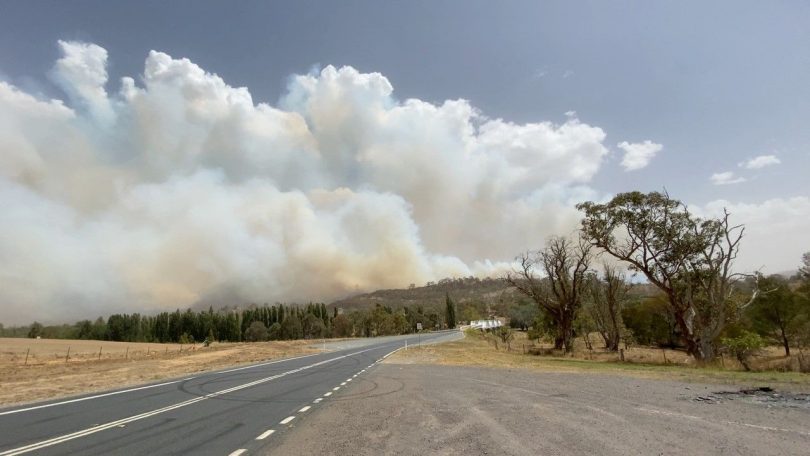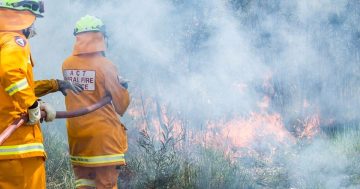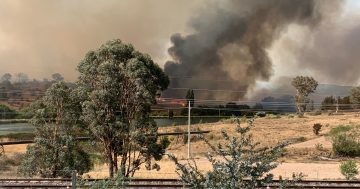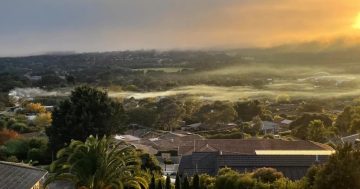
Sales of inhalers for shortness of breath increased dramatically during the last bushfire season. Photo: Gary Hooker.
Sales of asthma inhalers to people experiencing shortness of breath increased dramatically in Canberra and the capital region over the summer as smoke-related health costs from the bushfires almost tipped $2 billion.
Sales tripled between 29 December 2019 and 12 January 2020 compared to the previous year and doubled in mid-December as Canberra was blanketed in smoke from bushfires, new data from the Australian Institute of Health and Welfare (AIHW) reveal.
Canberrans experienced the worst air quality in the world at least twice in early January with pollution levels jumping to more than 20 times the hazardous threshold.
The capital region statistical area which covers the area from Young, Goulburn and Batemans Bay down to the Victorian border excluding Canberra experienced its largest increase in inhaler sales for shortness of breath in the week starting 29 December when the fires were at their worst along the coast.
Sales jumped by almost 150 per cent compared to the same week the year before.
Presentations to emergency departments for respiratory problems in the capital region also increased by an average of 50 per cent a week throughout December 2019. There was a 27 per cent spike in admissions between 19 January and 26 January before a sharp fall of almost 13 per cent the following week.

The intensity of the Black Summer bushfires. Photo: AIHW.
Requests for Medicare subsidised mental health services also skyrocketed in the wake of the bushfires, with almost 5,100 patients accessing around 19,000 services as of 11 October 2020.
The most commonly accessed services were registered psychologists (46 per cent) and clinical psychologists (41 per cent).
The report only touched upon the short-term health impacts of the bushfires but the AIHW is working towards further long-term data.
The report noted that 12 to 15 per cent of people still experienced mental health problems that likely required professional support three to four years after the 2009 Black Saturday bushfires, a rate twice as high as the general population.
Further research into the long-term impacts of the bushfires and prolonged exposure to smoke at different concentrations was also recommended by the Royal Commission into National Natural Disaster Arrangements.
The full report can be accessed from AIHW.





















